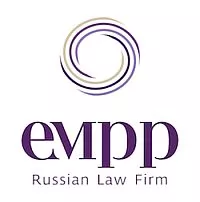Each separate stage of an M&A project has its specific mechanism of reduction legal counsel fees. In order to consider this mechanics it makes sense to divide a typical M&A project into the following principal stages:
- Development of a transaction structure
- Memorandum of understanding
- Due-diligence of the acquired asset
- First drafts of transaction documents
- Negotiations and preparation of revised drafts of transaction documents
- Disclosure letter
- Regulatory approvals
- Review of legal counsel reports
Now we shall analyse each separate stage of a typical M&A project:
- Development of a transaction structure: this stage is not expensive and it normally does not take much time. It is therefore acceptable to use either an international law firm or a Russian law firm for the development of the transaction structure.
- MOU: MOU may be prepared by the client's personnel as the document normally contains economic and financial terms. Even if MOU is prepared as a term-sheet specifying general terms of contemplated transaction documents, legal counsel that will be drafting the documents will insist to insert a number of provisions not initially included into the MOU or term-sheet. The reason for the inclusion of such terms will be that these are standard provisions and it is common practice that such provisions are not inserted into either MOU or term-sheet that usually contain only business agreements.
- Due-diligence of the acquired asset:
- Can be carried out by a Russian law firm as it is a wide-spread practice that junior associates do a due-diligence in an international law firm. Accordingly, the quality of the due-diligence report is normally below reasonable expectations.
- It is advisable to use data-rooms --
http://www.idealscorp.com/ru. This will effectively reduce legal transportation fees (since the road to the place of meeting/review of the documents is billable). Reviewing documents in data-rooms will encourage legal counsel to work more efficient since the client will have an opportunity to monitor time spent by the legal counsel on review of the documents and documents reviewed during the period.
- First drafts of transaction documents: the client has solid grounds to request fixed cap on the first drafts of the documents. The reason is that the first drafts are normally standard drafts which any legal counsel has in a nearly ready to go state. Despite the widely postulated arrangements of the parties to prepare reasonable and balanced first drafts of the transaction documents, these drafts will never be balanced documents. They will significantly protect interests of the party preparing the drafts. Accordingly, the client may use either international law firm or reasonable Russian law firm and request fixed cap.
- Negotiations and preparation of revised drafts of transaction documents: fixed cap is normally not a feasible option as it is hard to predict the continuity of the negotiations. Below are available options to tackle the issue:
- The client may request that a mid-level associate from an international law firm participates during negotiations and notes the agreements/disagreements of the parties. Following negotiations the associate can discuss all his/her notes with the senior associate or counsel/partner of the firm who is in charge of drafting the transaction documents. The senior associate/counsel/partner will draft the document in accordance with the notes and clarifications from the client.
- Another option is to use reasonable Russian law firm. A senior associate/ partner of the firm may participate the negotiations and draft the required transaction documents. If required, the final review of the documents may be done by the counsel of the relevant jurisdiction.
- Important point to mention is that one should not draft detailed transaction mechanisms until they are agreed by the parties. Rather it makes sense to draft the main provisions of the proposed mechanism (e.g., determination of market price in case of put/call options; summary of share buy-out in case of dead-lock, etc.) Only following the mechanism and its details are agreed, the party drafting relevant version of the document shall specify it in agreed details.
- Disclosure Letter: filling in the disclosure letter may be done by a Russian law firm. This is a rather standard procedure as the disclosure letter per se in a standard document consisting of general and special parts. Specific part includes disclosures against representations and warranties inserted into the transaction documents. Although it is common practice to state a specific role of the disclosure letter, in practice this is rarely the case. Firstly, if the due-diligence of the target raises a serious issue, this either will be specified in indemnity section which is not balanced by the disclosure letter or will reduce the transaction price. Secondly, limitation of representations and warranties by actual knowledge of specific seller/target personnel is normally more important than balancing representations and warranties with the disclosure letter.
- Regulatory Approvals: this stage can be easily done by in-house lawyers since the stage is a very standard. Alternatively, external legal counsel may do the stage for the fixed fee.
- Review of legal counsel reports: this can be done by the in-house lawyers with sufficient experience and understanding of potential inconsistencies and unreasonable/clear exaggerations in the report which is not a rare event. Another option is to hire an advisor which will do all the work for the in-house lawyer and will take approximately 30% of the invoice reduction. It is essential to note that successful appeal of the legal counsel invoice may be done only if the legal services agreement obliges the counsel to provide reports with the detailed 0.1 or 0.25-hour breakdown of services per each associate/partner engaged in the project.
The content of this article is intended to provide a general guide to the subject matter. Specialist advice should be sought about your specific circumstances.

